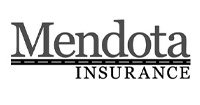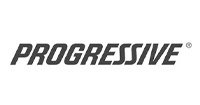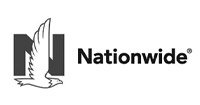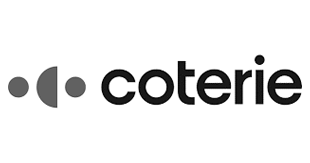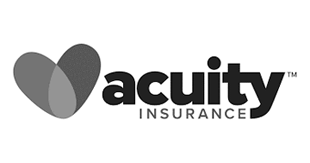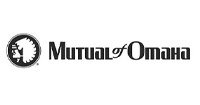What is cyber liability insurance?
Cyber liability insurance
Cyber liability insurance protects small businesses from the high costs of a data breach or malicious software attack. It covers expenses such as customer notification, credit monitoring, legal fees, and fines.
Why do small businesses need cyber liability insurance?
Cyberattacks and data breaches are expensive and increasingly common. Small businesses often have weak cybersecurity, which makes them an attractive target.
A cyberattack isn’t just an inconvenience – it can put you out of business. In fact, 60% of small businesses go under within six months of a cyberattack.
Cyber insurance coverage helps your business recover from financial losses caused by cyberattacks and data breaches. It can pay for credit monitoring, attorney’s fees, fines, and other costly expenses.
If your company handles sensitive information, you need a cyber policy
Cyber liability insurance is a key policy for companies that handle credit card numbers, work in the cloud, or operate in cybersecurity.
Hackers often target retailers, healthcare organizations, and financial service providers, but any business can fall victim to a data breach.

Businesses that purchase this policy typically handle:
- Credit card or bank account information
- Medical information
- Social Security or driver license numbers
- Customer names, email addresses, phone numbers, and addresses
- Cybersecurity for other businesses
What does cyber liability coverage help pay for?
Cyberattacks are expensive and can take a long time to resolve. A study by IBM and the Ponemon Institute put the average cost of a data breach at $3.86 million. The average time to identify and contain a breach was 280 days.
A cyber insurance policy can pay for:
- Mandatory notification of affected parties. Failure to do so could result in steep fines and penalties.
- Investigating and fixing security flaws.
- Several years of credit monitoring services for affected customers.
- Loss of business opportunities. You might need to hire a public relations firm to help manage any reputational damage.
Which type of cyber liability insurance do you need?
There are two types of cyber liability insurance:
- First-party coverage helps cover expenses when your systems or network are breached or your data is stolen.
- Third-party coverage offers protection when a client sues your company for failing to prevent a breach at their business.
First-party cyber liability insurance covers cyber risks at your company
First-party coverage involves the costs that directly impact your business. It helps cover expenses when your network is hacked or your data is breached. It can help defray the costs of notifying customers and paying for credit monitoring services to those affected.
This coverage, sometimes called data breach insurance, can often be added to your general liability insurance. It’s recommended for retailers and other professionals who collect customer credit card information.
First-party cyber liability insurance can cover:
- Cyber extortion payments
- Hiring an expert to investigate the breach and assist with regulatory compliance
- Notifying affected customers
- Customer credit and fraud monitoring services
- Crisis management and public relations
- Business interruption expenses, such as the cost of hiring additional staff, renting equipment, or purchasing third-party services
Third-party cyber insurance covers lawsuits related to cyber risks
Third-party coverage is for claims made against your business by injured parties. It provides liability coverage if a client blames you for failing to prevent a data breach or cyberattack at their company. This could include the cost of legal defense and settlements.
This insurance is recommended for tech professionals, such as an IT consultant who makes software recommendations to clients. If the software they recommend is later responsible for a client’s data breach, third party coverage will help cover the cost of a lawsuit.
Third-party cyber liability insurance can cover:
- Legal defense costs
- Settlements if you and the client settle out of court
- Judgments you’re legally obligated to pay after a data breach
- Other court costs
Third-party cyber liability insurance can be bundled with your errors and omissions policy. When combined, these two coverages are known as technology errors and omissions insurance, or tech E&O.
How much does cyber liability insurance cost?

Cyber liability insurance can be an affordable option for a small business. Several factors affect policy costs, including:
- Amount of sensitive data handled
- Your industry
- Coverage limits
- Number of employees
How do cyberattacks happen?
Verizon’s Data Breach Investigations Report found that 28% of data breaches involved small businesses. The report also revealed:
- 70% of data breaches were caused by outsiders
- 86% of attacks were financially motivated
- 43% of breaches occurred through web applications (a rising trend)
- 27% of malware incidents were related to ransomware
Nearly a third of data breaches in 2020 involved small businesses, yet 43% of small businesses don’t have any kind of cybersecurity defense plan and only 16% think they are at risk of an attack.
The coverage included in cyber liability insurance defrays these costs, allowing your company to survive a breach.
What are some examples of data breaches and cyberattacks?
Cybercrime is a multibillion-dollar industry. Security firms constantly struggle to stay one step ahead of hackers looking for lucrative victims. Even with careful security measures in place, catastrophic data breaches can, and do, occur.
Phishing emails, malware, security breaches, network security issues, and computer system breakdowns are just a few examples of the kinds of cyber risk that could cause serious liability or losses.
Here are a few recent examples:
In December 2019, Wawa disclosed that hackers breached its credit and debit card payment systems at all 860 convenience stores. A month later, hackers put the payment card details of more than 30 million Americans for sale on an Internet forum for credit card fraud.
In March 2020, Marriott International announced that the personal information of approximately 5.2 million guests was stolen. This included names, addresses, phone numbers, email addresses, and dates of birth.
In July 2020, hackers used the Twitter accounts of some of the most famous people in the country to tweet requests for bitcoin donations to anonymous addresses. They received more than 400 responses and stole bitcoin worth $121,000.
In November 2020, the gaming company WildWorks announced a data breach in its kid’s game Animal Jam that resulted in the theft of more than 46 million users’ information.
What does general liability insurance cover?
General liability insurance covers common lawsuits that arise from everyday business activities. It protects against customer injuries, damaged customer property, and accusations of defamation and copyright infringement.
General liability insurance provides coverage for:
- Third-party bodily injury
- Product liability
- Third-party property damage
- Advertising injuries
Third-party bodily injury
If a customer is hurt in an accident involving your business, general liability insurance can help pay for medical expenses. It also covers legal expenses if a customer sues over the injury.
Example: A customer trips over a carpenter’s toolbox and breaks a leg. The doctor’s bills add up fast, so the customer sues to recoup his losses. Your policy can cover the cost of medical expenses, including the emergency room bill. If the customer refuses your assistance and opts to sue at a later date, your policy can help cover the cost of hiring a lawyer.
Third-party property damage
General liability insurance can cover expenses to repair or replace customer property accidentally damaged by a business.
Example: A general contractor backs his pickup truck into a client’s fence. Depending on policy limits, general liability coverage can pay for some or all expenses associated with replacing the damaged fence.
Product liability
Not all property damage or customer injuries happen inside a store. If a business manufactures, distributes, or sells products, it can be sued over the harm its products cause to people or property.
Example: A customer buys a container of a lawn care company’s organic fertilizer. After applying it to her lawn, she suffers a serious allergic reaction and misses three days of work. Blaming her illness on the fertilizer, she sues the lawn care business for lost wages. A general liability policy can typically cover the legal expenses associated with product liability lawsuits.
Advertising injuries (libel, slander, and copyright)
If someone sues a business owner or employee over slander, libel, or copyright infringement, general liability insurance can help pay for legal expenses.
Example: A maid at your house cleaning company tweets a rude comment about sloppy work done by a competing company. The tweet goes viral, and the owner of the competing business decides to sue for libel. Advertising injury coverage in general liability insurance can help pay for legal defense expenses and settlement or judgment costs when you’re sued over advertising mistakes.
How much general liability coverage do I need?
If you are purchasing general liability insurance to fulfill the terms of a contract or lease, you need to make sure that your coverage meets the requested policy limits. The amount of coverage you need also depends on factors such as the size of your business, its industry risks, and the number of employees.
Most small businesses opt for the standard $1 million per occurrence / $2 million aggregate policy limits. This means the policy will pay up to $1 million to cover a single claim, with a $2 million limit for the lifetime of the policy (typically one year).
General liability insurance does not cover:
- Professional errors
- Employee discrimination lawsuits
- Vehicles used by a business
- Employee injuries
- Damage to business property
- Liquor liability
Professional errors
Professional liability insurance, also called errors and omissions insurance, can cover lawsuits over professional mistakes, including undelivered services and missed deadlines.
Example: A real estate agent accidentally lists a house as having hardwood floors when it really has laminate wood flooring. After the home is sold, the homeowner discovers the error and files a lawsuit. Professional liability insurance could help cover the agent’s legal costs.
Employee injuries
Workers’ compensation insurance is the policy that covers medical expenses, physical therapy, and some lost wages for employees.
Example: A cook at a restaurant gets splashed with hot oil and suffers third-degree burns. Workers’ comp helps pay for the emergency room bill and part of his missed wages while he recovers.
Damage to business property
A business owner’s policy, which combines general liability insurance with commercial property insurance, can help cover the cost of replacing stolen business property. It can also pay for repairing or replacing business property damaged by fire or certain weather events.
Example: A fire at an office complex damages a tax preparation company. Commercial property insurance can help pay for replacement computers, equipment, and building renovation costs.
Employee discrimination lawsuits
Employment practices liability insurance (EPLI) can cover lawsuit expenses related to claims of harassment, discrimination, and wrongful termination.
Example: An employee at an engineering business files a lawsuit claiming partners are not assigning her to high-profile projects because of her ethnicity. An EPLI policy could cover legal expenses for the firm.
Vehicles used by a business
Personal auto insurance policies almost always exclude business use. Vehicles owned by a business must be covered by commercial auto insurance. Personal vehicles used for work purposes, along with leased or rented vehicles, can be covered by hired and non-owned auto insurance, which you can add to a general liability policy.
Example: An IT consultant driving his car to meet a client gets into an accident. His personal auto insurance policy won’t pay for damages, but a hired and non-owned policy would.
Liquor liability
Liquor liability insurance covers lawsuits over incidents caused by people who became intoxicated at your business. That could include drunk driving, assault, and vandalism.
This policy is required for businesses that serve alcohol. You can purchase it as a standalone policy or add it to your general liability policy.
Example: After leaving a bar, intoxicated patrons vandalize the office building next door. Liquor liability insurance covers the bar’s legal defense costs when the office sues.
General liability exclusions
General liability insurance has some additional coverage exclusions. For example, it doesn’t pay defense costs for intentional copyright infringement or willful negligence – which can be criminal offenses. It also doesn’t cover intentional injury or property damage.
Read your policy carefully to see what is and isn’t covered. To fill gaps in coverage, you can add endorsements to your policy. Check with an Safe Harbor Insurance agent to make sure your general liability policy includes all the coverage you need.
How much does general liability insurance cost?
The cost of general liability insurance varies based on your business operations and policy limits, among other factors.
Average general liability insurance costs for Safe Harbor Insurance customers
Regardless of policy limits, the median cost of general liability insurance is $42 per month ($500 annually). The median cost offers a more accurate estimate of what your business is likely to pay than the average cost of business insurance because it excludes outlier high and low premiums.
Most small business owners (48%) pay between $300 and $600 annually for their policies, and 17% pay less than $300. These figures were derived from an analysis of thousands of insurance policies purchased by Safe Harbor Insurance small business customers.

Industry risks impact general liability insurance costs
Our analysis of general liability insurance costs reveals that your industry has the biggest impact on policy costs. Generally, high-risk industries pay higher premiums, while low-risk industries enjoy lower rates.
For example, brick-and-mortar retailers open to the public are exposed to more risk than IT consultants working from a home office. The graph below illustrates how the industry you work in affects what you’ll pay for a general liability policy.

How coverage limits affect general liability insurance costs
If you want car insurance that pays for a wide range of damage, you have to pay more for it. The same rule applies to business insurance. If you want a policy with higher coverage limits, expect to pay more than you would for basic coverage.
The most popular general liability policy is the $1 million / $2 million policy. This includes:
- $1 million occurrence limit. While the policy is active, the insurer will pay up to $1 million to cover any single claim.
- $2 million aggregate limit. During the lifetime of a policy (usually one year), the insurer will pay up to $2 million to cover claims.
The majority of Safe Harbor Insurance customers (92%) choose a policy with $1 million / $2 million limits. Five percent of our customers choose a policy with $2 million / $4 million limits, the next most popular choice.
Tips for finding general liability cost savings
Bundle your insurance policies. With insurance, businesses can sometimes find discounts when they purchase multiple policies from the same provider. For example, if your business is considered low risk, you may qualify for a business owner’s policy. A BOP bundles commercial general liability and property insurance together at a reduced rate.
Pay your entire premium upfront. Your general liability policy premium can typically be paid in monthly or annual installments. It might be tempting to go with a smaller monthly payment, but consider paying the full premium. Businesses can usually save money this way because many insurers offer discounts for annual premiums.
Proactively manage your risks. If your small business has a clean claims history, expect to pay lower insurance rates. An effective way to do this is to create a comprehensive risk management plan. For example, you might:
- Develop a thorough training program for employees
- Invest in a security system
- Compile rules for posting to social media
- Create procedure checklists and reviews
- Minimize hazards on your premises
Learn more about business insurance costs
Insurance premiums vary based on the policies a business buys. See our small business insurance cost overview or explore costs for a specific policy.
- Professional liability insurance
- Business owner’s policy
- Errors and omissions insurance
- Workers’ compensation insurance
- Cyber liability insurance
- Commercial umbrella insurance
- Commercial auto insurance
- Employment practices liability insurance
- Directors and officers insurance
How to buy general liability insurance with Safe Harbor Insurance
In most cases, we’ll deliver multiple quotes from top U.S. carriers as soon as you finish the application. Look them over and pick the policy that works best for you. A licensed Safe Harbor Insurance agent is available to assist you throughout the process.
Once you purchase a policy, you can access your account and obtain a certificate of insurance, which is a formal proof-of-insurance document you need to show when you sign certain contracts or apply for professional licenses. Typically, it takes between 24 and 48 hours to complete the process and gain insurance for your business.
Auto services
Building design
Cleaning services
Construction and contracting
Consulting
Finance and accounting
Food and beverage
Healthcare professionals
Home-based businesses
Installation professionals
Insurance professionals
IT / technology
Landscaping
Manufacturing
Media and advertising
Nonprofits
Personal care
Pet care
Photo and video
Printing and copying
Professional services
Real estate
Retail
Sports and fitness
Therapy and counseling
Trucking
Wholesale
General liability claims
A customer slips in a spill at your business, breaks a wrist, and sues to recoup medical expenses.
An employee drops a customer’s smartphone and it shatters. The customer sues for damages.
An employee makes disparaging remarks about a competitor, who sues for slander.

